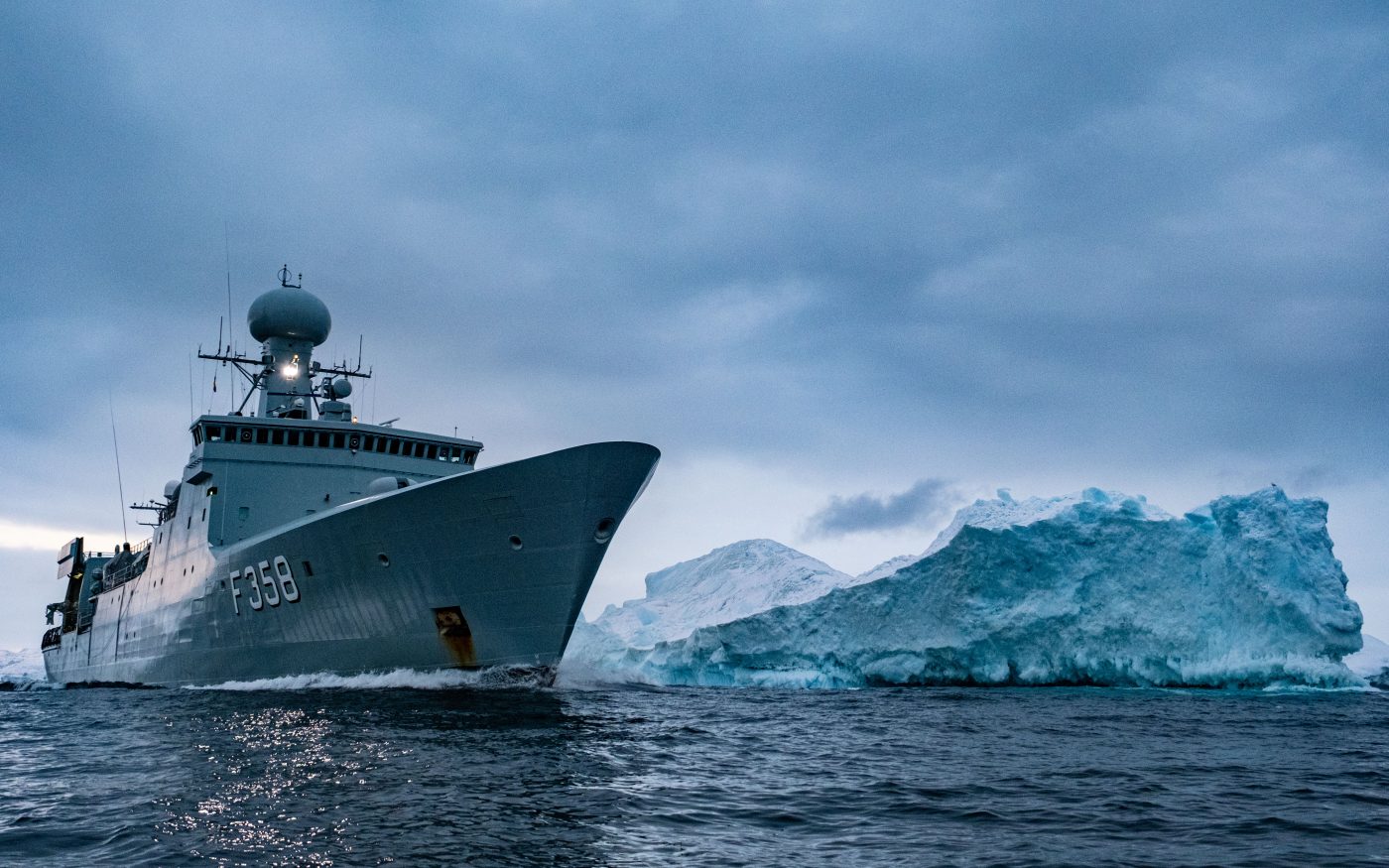By Benjamin Valentino Martin and Krista Viksnins
August 30, 2023
Russia’s invasion of Ukraine has left scars far beyond Europe including the High North.

The damage done by Russia’s full-scale invasion of Ukraine is hard to quantify. To stalled grain shipments, world hunger, soaring energy prices, and rampant inflation must be added the baleful effects for one of the most remote and uninhabitable regions of the world, the Arctic. The war has essentially frozen the region’s preeminent governing body, the Arctic Council.
For decades, the Council has been a shining star of light-touch, collaborative governance. Driven by its mandate of sustainable development and environmental protection, its work has informed some of the most significant legally binding international agreements and treaties like the International Maritime Organization’s Polar Code and the Arctic section of the annual Intergovernmental Panel on Climate Change report.
This work ground to a halt in March 2022, as the other seven Arctic States — the United States, Canada, Denmark, Norway, Sweden, Finland, and Iceland — “paused” their cooperation with Russia. In a joint statement in June, the “Arctic 7” announced a “limited resumption of our work in the Arctic Council, in projects that do not involve the participation of the Russian Federation.” However, without data from Russia’s roughly 45% share of the Arctic, the Council’s working groups cannot possibly function at full capacity.
“One thing is clear — the Arctic Council will not return to ‘normal,’” says CEPA Fellow Mathieu Boulègue. Having forsaken its traditional “leave politics at the door” policy by excluding Russia, the Council must now evolve to compensate for today’s realities. The Arctic has changed significantly since the Council’s inception in 1996 and according to Boulègue, the traditional “High North — low tension” paradigm in the region has been replaced by a “high-octane” environment of geopolitical competition and crisis.
The climate crisis has arrived and is hitting the Arctic especially hard, Interest in new shipping lanes and potential natural resource extraction has sparked competition between non-Arctic states, and the rapid militarization of the region by both Russia and NATO has raised tensions.
The changing geopolitics of the Arctic are by no means sudden. Russia’s invasions of Georgia in 2008 and of Eastern Ukraine in 2014 were warning signs that the Council’s largest geographical member could no longer be trusted as a good-faith international partner. It took the full-scale invasion of Ukraine to break the veneer of Arctic exceptionalism. The Arctic 7 must now pursue a strategy that deters Russia but also avoids escalation, as any boiling over of tensions in the Arctic would have catastrophic global implications.
In a recent trip to Canada’s North, NATO Secretary General Jens Stoltenberg spoke on this very challenge, referring to Russia’s High North military build-up as a “strategic challenge for the Alliance” requiring NATO to increase its “presence and vigilance across the Alliance, including in the High North.”
The question now is how to preserve the Council’s importance in the fight against climate change, the sustainable development for indigenous communities in the circumpolar region, and the preservation of fragile Arctic ecosystems, while adapting it to today’s geopolitical realities. Unsurprisingly, opinions differ greatly over what the future of the Council should be.
Employing doom-filled phrases like “the Arctic Council is dead,” some Arctic experts have suggested that the events of 2022 indicate there’s no chance of a revival. In this view, the Arctic 7 (soon to be a NATO 7) should focus its attention on other mechanisms of High North governance and security like the Barents Euro-Arctic Council, the Arctic Security Forces Roundtable, and the Northern Group. This perspective eschews the importance of the political function of the Council to the Arctic’s roughly 4 million inhabitants, who are some of the most vulnerable to climate change and environmental degradation. It does not resolve the significance of the work done by the Council’s six active Working Groups in shaping global Arctic policies, nor does it address the importance of the Council as a forum for discussion on the future of the Arctic with non-Arctic states.
Another approach is to push for the full resumption of Arctic Council operations. According to Dr. Elizabeth Buchanan, an expert on the region: “Morality of state actions aside, the collective benefit of a functioning Arctic Council ought to be protected.” From this perspective, the benefits of the Arctic Council’s style of apolitical, collaborative governance are worth preserving. The challenge is to keep the process alive in the hope of a future, less aggressive Russia. It is of course impossible while the Kremlin occupies large swaths of Ukraine.
This could be achieved by the preservation of the Arctic Council’s scientific working groups and limited political functions like the Indigenous Peoples’ Secretariat which are indispensable in the minds of many Arctic experts, diplomats, and inhabitants.
The Arctic 7 must make some tough decisions. There are plausible answers for the years ahead where Russia continues to lock itself out of cooperative forums and indeed, there must be. The loss of a key forum for circumpolar dialogue could have catastrophic ramifications for the future of the Arctic and its inhabitants.
Benjamin Valentino Martin attends Science Po Paris and the London School of Economics and is currently an intern with the External Affairs team at the Center for European Policy Analysis (CEPA).
Krista Viksnins is a Program Officer with the Transatlantic Defense and Security Program at the Center for European Policy Analysis (CEPA). Her interests include Nordic-Baltic security, cyberwarfare, the rule of law, and congressional relations. Krista received her J.D. from the University of St. Thomas School of Law and her B.A. in Political Science and Spanish from St. Olaf College. She is also a licensed attorney.
No comments:
Post a Comment